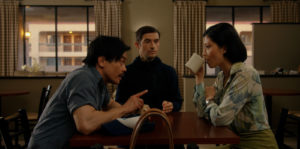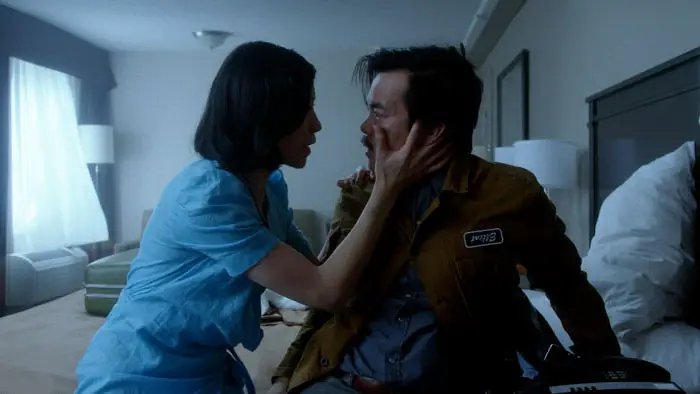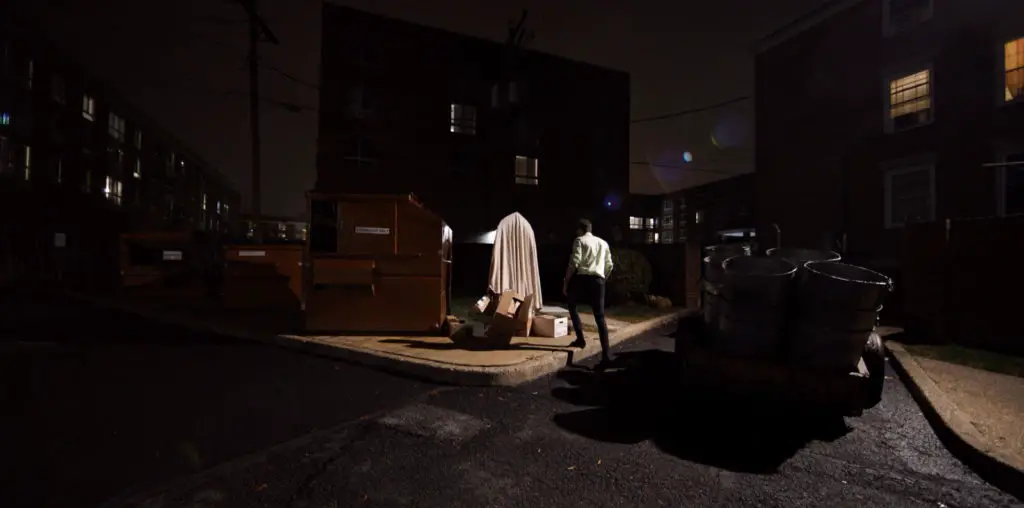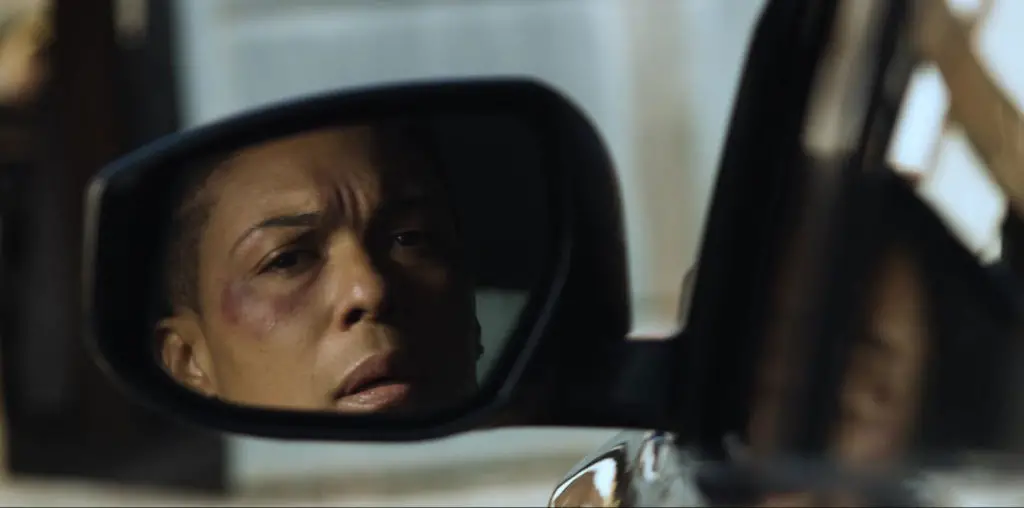
You know what they say about that Hotel California? You can check out… just kidding! No one needs to hear that again. But, in writer/director Chris Chan Lee’s mysterious thriller Silent River, it’s a somewhat apt way to begin discussing this oddity of a film. An atmospheric mash-up of science fiction with elements of the surreal, it’s a novel and overly ambitious feature-length debut from Lee.
What’s it about? Synopsizing can get tricky because the film starts with Elliot (West Liang) checking into a desert motel, only to go off the rails as the story progresses. We learn about his past incrementally and glean that Elliot is on the outs with his wife, Julie (Amy Tsang). These developments are all interspersed with disorientating excursions into the desert, one-sided phone calls, and seemingly innocuous poolside chats with an impossibly beautiful woman (Chandra Anderson).
Liang is great in Silent River. Worn out, agitated, and looking like he’s constantly confused, his performance is a highlight in a film that isn’t necessarily relying on dramatic chops from the cast. Tsang is also asked to do a lot and delivers a convincingly ethereal presence. Had the filmmaker gone in a different direction, allowing these two characters a bit more time together would have been beneficial, but it works.

“…Elliot is on the outs with his wife…”
If there’s one thing that Lee does well, it’s create an otherworldly atmosphere that isn’t dissimilar from the works of David Lynch or Terry Gilliam. It’s not often we get films that use hotels as a central location (the obvious horror classic notwithstanding). The director reminds us of their utility as locations when appropriately used. Confining, with a distinct lack of personality, they can take on a nightmarish quality in and of themselves, and in the hands of a competent director – which Lee definitely is – the possibilities are limitless.
Filmmakers just starting out with feature-length films often struggle with conciseness. Lee is, unfortunately, no exception to the rule. He throws a lot at the audience, and while the execution of the individual pieces works, he just takes too long to get to resolutions. Complaining about a film’s length is a fairly cheap criticism, but it is fair to look at pacing, and that’s where Silent River shows room for improvement. I didn’t love the narrative direction of the last quarter, but I would have been less bothered had it taken significantly less time to get there.
Before we get to the bottom of what is going on, the fragile sense of reality and unsettling nature of the location really help to make Silent River memorable. I’ve seen my share of outlandish films, but this one sticks out. I’m partial to the desert, and I really love the motel setting, so it stands to reason that I’ll remember this for a while, even if there’s a noticeable lack of efficiency. But for those still on the fence, I recommend taking off that “Do Not Disturb” hanger and letting all that goes bump in the night in for the evening.

"…[let] all that goes bump in the night in for the evening."


